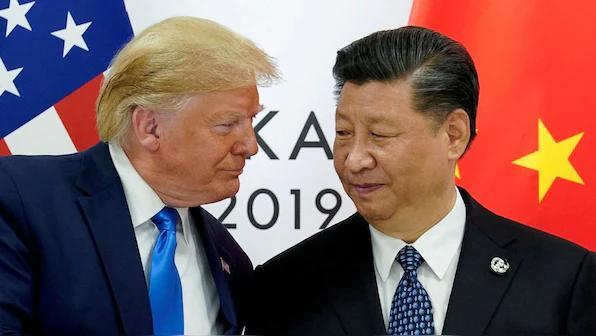
China Refuses to Join Denuclearisation Talks with US & Russia
In a move that has sent shockwaves through the international community, China has announced that it will not be joining trilateral denuclearisation talks with the United States and Russia. This decision comes as a response to a recent call by President Donald Trump to include Beijing in future negotiations.
According to a report by the Chinese Foreign Ministry, Spokesperson Guo Jiakun stated that the expectation of China’s participation in such talks was “neither reasonable nor realistic”. This decision has raised concerns about the effectiveness of global efforts to address the issue of nuclear proliferation.
The announcement comes at a time when tensions between the world’s two largest economies, the United States and China, are already running high. The two nations have been engaged in a trade war for several months, with the US imposing tariffs on billions of dollars’ worth of Chinese goods.
The issue of denuclearisation has been a major point of contention between the United States, Russia, and China in recent years. The three nations have had differing views on the issue, with the US and Russia pushing for a complete abolition of nuclear weapons, and China resisting such a move.
China’s decision to opt out of the talks is largely attributed to its concerns about its own nuclear capabilities. According to Guo Jiakun, China and the US are not at the same level in terms of nuclear capabilities, making it “neither reasonable nor realistic” for China to participate in the talks.
This statement has been met with criticism from some quarters, who argue that China’s refusal to participate in the talks is a missed opportunity to address the global issue of nuclear proliferation. Others have pointed out that China’s nuclear capabilities are not as advanced as those of the US and Russia, and that it should be willing to negotiate and find a solution that works for all parties.
However, China remains firm in its stance, and has reiterated its commitment to its own nuclear program. The country has been expanding its nuclear capabilities in recent years, with plans to increase its nuclear arsenal to over 300 warheads by the end of the decade.
The refusal of China to participate in the talks has significant implications for the global efforts to address the issue of nuclear proliferation. The US and Russia have been pushing for a complete abolition of nuclear weapons, but China’s refusal to join the talks makes it more difficult to achieve this goal.
The situation is further complicated by the fact that China is a key player in the global nuclear landscape. The country has a significant nuclear arsenal, and its refusal to participate in the talks could potentially undermine the efforts of the US and Russia to address the issue of nuclear proliferation.
In conclusion, China’s refusal to join denuclearisation talks with the US and Russia is a significant development in the global effort to address the issue of nuclear proliferation. The decision has implications not only for the three nations involved but also for the global community as a whole.
As the world continues to grapple with the complex issue of nuclear proliferation, it is essential that all nations work together to find a solution that works for everyone. The refusal of China to participate in the talks is a setback, but it is not the end of the road. There is still hope that the three nations can find a way to work together to address this critical issue.



